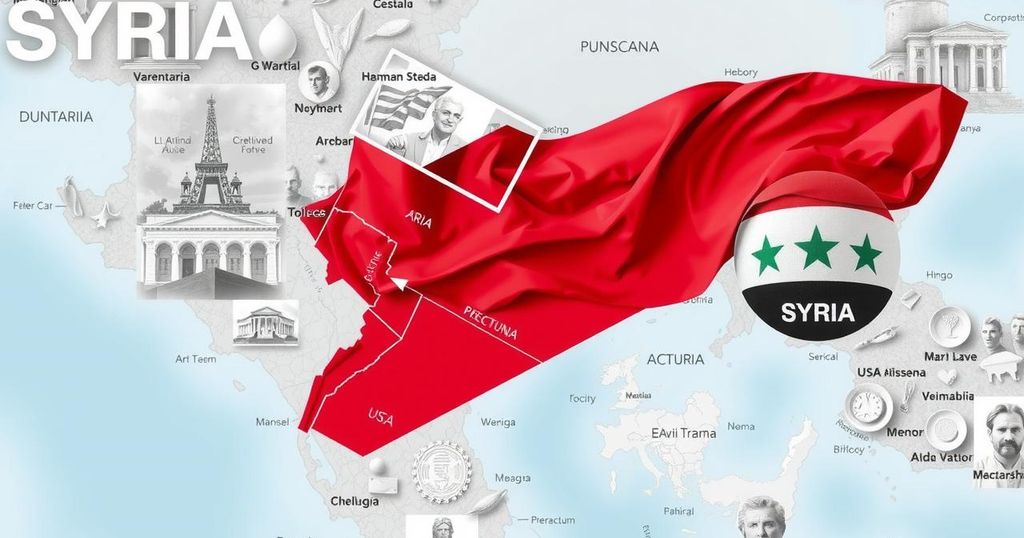Geopolitical Echoes: The Impact of Assad’s Fall on Libya’s Power Dynamics

The ousting of Bashar al-Assad from Syria has precipitated a geopolitical shift, with Russia enhancing its military presence in Libya to support Khalifa Haftar and secure strategic maritime interests. This realignment may intensify conflicts in the Mediterranean and surrounding regions, reflecting deep-rooted ties between authoritarian regimes and international powers.
The recent ousting of Syrian President Bashar al-Assad reverberates across the Mediterranean, particularly influencing developments in Libya. In the aftermath of Assad’s fall, reports indicated that several officials loyal to him swiftly relocated to Libya, specifically to Benghazi. Concurrently, Russian military assets, previously stationed in Syria, began transitioning to Libya, exacerbating Western fears regarding Moscow’s expanding influence in North Africa. This shift in focus from Syria to Libya reinforces the strategic posture of Khalifa Haftar, the commander of the Libyan National Army, enhancing his leverage amid a landscape of fragmented power in the aftermath of a decade-long conflict.
As Russia withdraws its military presence in Syria, it simultaneously amplifies its naval capabilities in Libya. The Kremlin’s involvement appears aimed at fortifying Haftar’s position while simultaneously securing naval access to eastern Libya’s ports. This geopolitical maneuvering reflects a broader Russian strategy to solidify its influence across Africa, utilizing Libya as an operational hub. Notably, Haftar’s connections to the Assad regime illuminate a collaborative dynamic underpinned by shared authoritarian tactics and cross-border illicit trade networks.
The allure of Libya, with its extensive Mediterranean coastline and ties to various geopolitical players, has caught the interest of several foreign powers. While Turkey and Russia historically support opposing factions, their respective engagements in Libya have fostered a coexistence centered around mutual economic interests. Such dynamics, coupled with Haftar’s strengthened position, signal a complex interplay of national interests that may evolve significantly in the near future, especially as conflict continues to simmer in adjacent regions.
The geopolitical landscape in the Mediterranean is undergoing significant shifts following the abrupt ousting of Assad in Syria, which has compelled Russia to recalibrate its military strategies in the region. The fall of Assad has not only triggered an influx of regime officials seeking refuge in Libya but has also prompted Russia to enhance its logistical and naval capabilities in the Libyan terrain. This strategic pivot is largely aimed at boosting Khalifa Haftar’s influence, who has historically benefitted from support reminiscent of Assad’s regime. The involvement and maneuvering of various foreign powers in Libya, particularly Russian and Turkish interests, further complicate the regional security dynamics, as each actor seeks to assert its influence amidst a backdrop of ongoing conflict.
The fallout from Assad’s ouster in Syria delineates a precarious shift in power dynamics across the Mediterranean, particularly benefitting Khalifa Haftar in Libya. As Russia reallocates its military assets to secure its interests in Libya, the potential for escalating conflicts in neighboring regions grows. The intertwining of illicit networks, authoritarian governance, and foreign interventions forms a complex nexus that will likely influence the political and military landscape in Libya and beyond for the foreseeable future.
Original Source: www.france24.com






